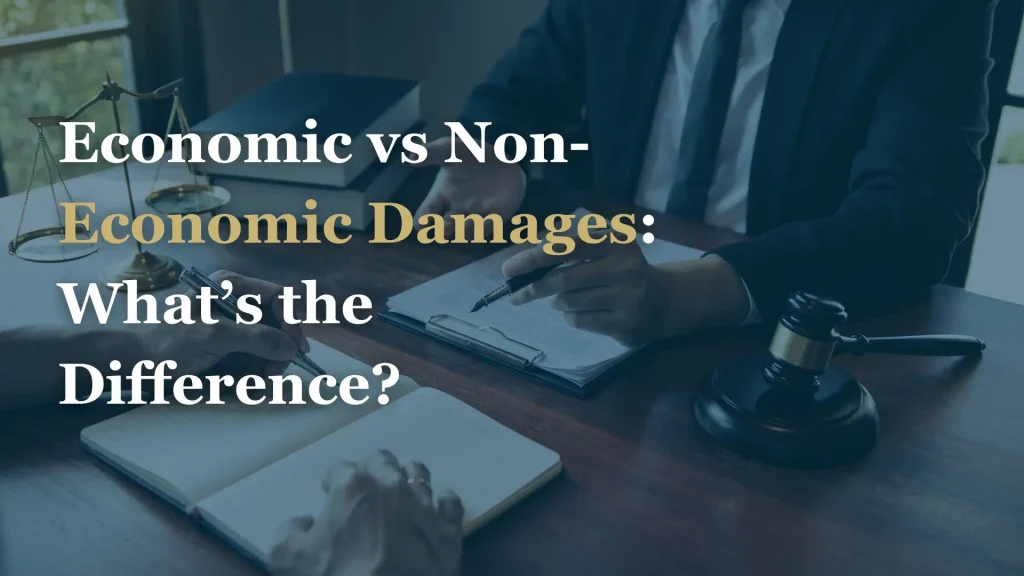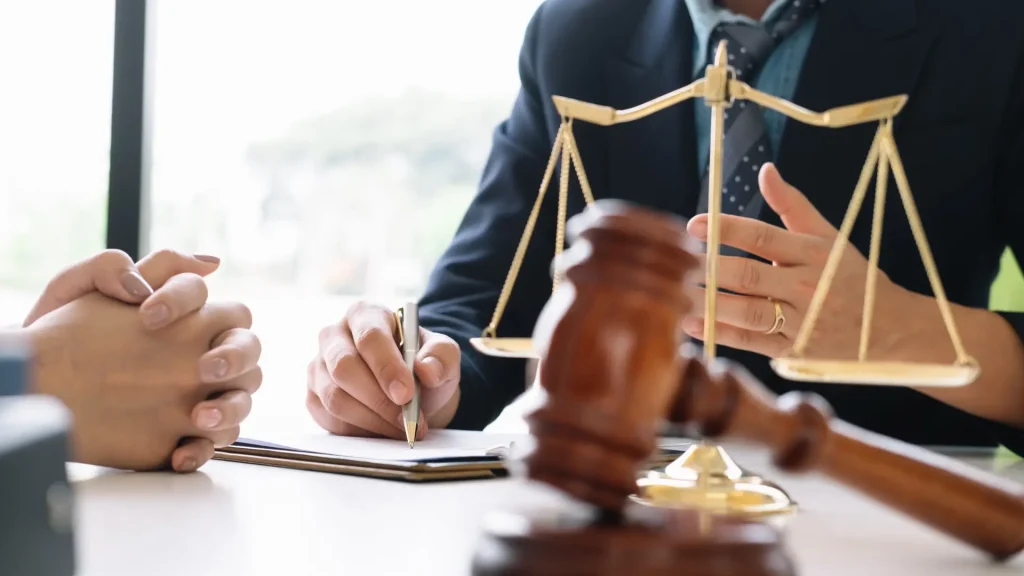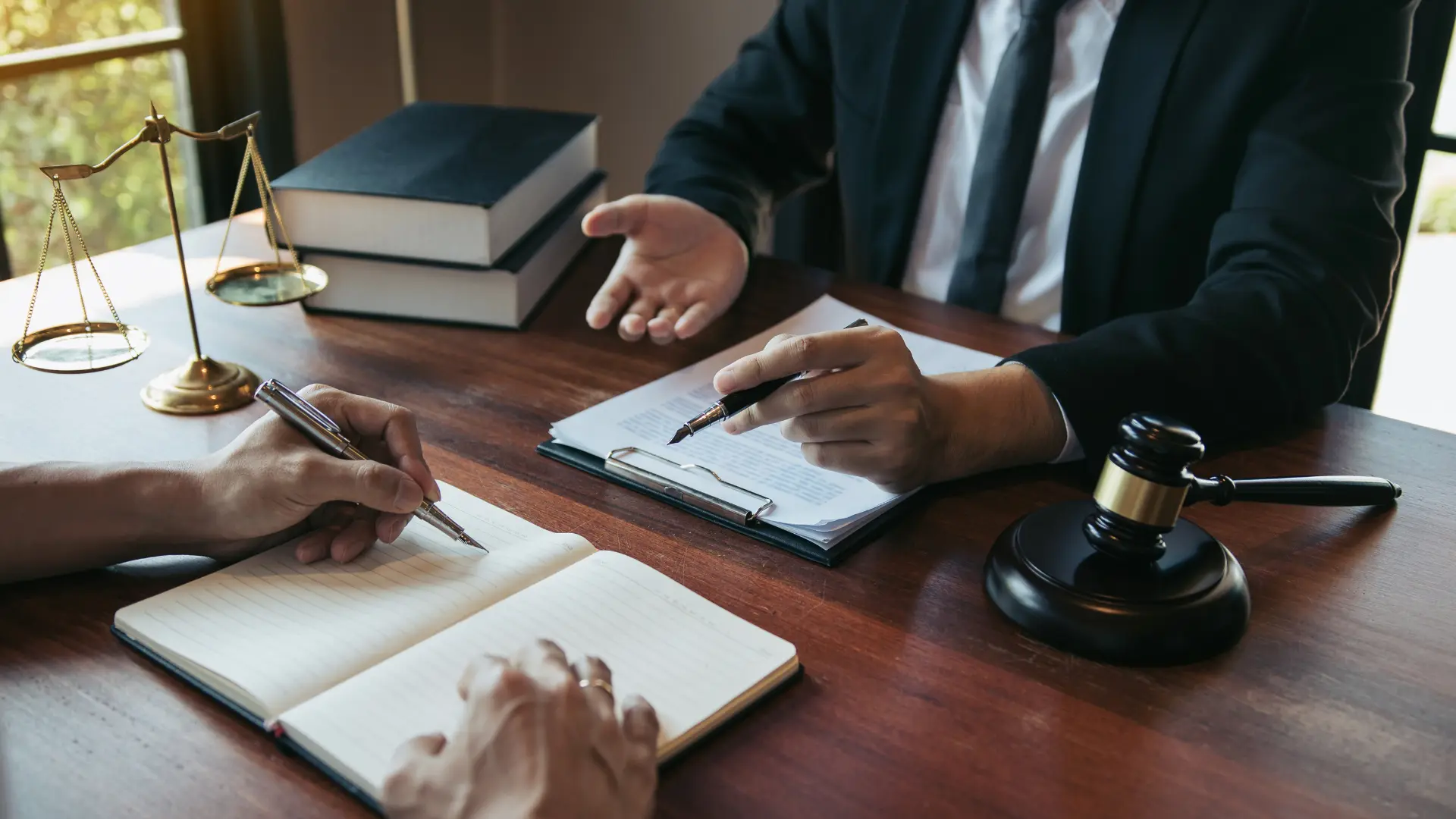
In the aftermath of a severe accident, you might have questions about how you will cover your medical bills, replace your lost wages, or deal with the emotional fallout. Personal injury claims can help you recover compensation for these losses. There are two main types of damages (the legal word for compensation) in these claims: economic and non-economic. Knowing the difference between these types of damages can help you understand your potential compensation and maximize the value of your claim.
The South Dakota injury attorneys at [firm-name] know you’re hurting and understand the importance of helping you recover compensation for all your losses from an accident. With decades of legal experience to call on, we can help you seek compensation for all the ways your injuries have impacted your life.
What Does “Damages” Mean in a South Dakota Personal Injury Case?
In a personal injury claim, “damages” is the term for the compensation you receive to make up for the losses you’ve experienced due to someone else’s actions. To recover damages, you must show that someone else caused your injuries through their wrongdoing. Usually, that means they failed to take reasonable steps to prevent the incident that led to your injuries. A lawyer can take care of all the legal work in your case while you focus on healing.
What Are Economic Damages?
Economic damages compensate you for your measurable financial losses after an accident. These damages are meant to make you financially whole again by covering your out-of-pocket expenses and other losses that are directly tied to the accident. Calculating economic damages involves adding up all the verifiable costs you’ve incurred or will incur in the future because of your injuries, including:
- Medical Expenses: Economic damages can cover your hospital bills, doctor visits, surgeries, physical therapy, prescription medications, and any future medical care you might need.
- Lost Wages: If your injuries have forced you to miss work, you can claim the income you lost during your recovery as part of your economic damages. Your lost income includes your salary, bonuses, commissions, and any other earnings you would have received.
- Loss of Earning Capacity: If your injury affects your ability to work in the future, your economic damages can include compensation for this loss.
- Property Damage: Economic damages can cover the cost of repairing or replacing any personal property damaged in the accident. For example, if your car was wrecked, you could seek compensation for the repair costs or the car’s value if it’s beyond repair.
- Rehabilitation Costs: If you need ongoing rehabilitation services, such as physical or occupational therapy, you can include these expenses in your economic damages.
- Household Services: If your injury prevents you from performing household chores, you can claim the cost of hiring help as part of your economic damages. This includes paying for services like cleaning, lawn care, and childcare.
- Transportation Costs: Economic damages can cover the cost of traveling to and from medical appointments, including gas, parking fees, and public transportation expenses.
What Are Non-Economic Damages?
Your non-economic losses after an accident are harder to quantify because they don’t have a fixed value. However, they have a profound impact on your recovery. Non-economic damages provide compensation for the emotional and psychological impact of your injuries. Non-economic damages aim to make you whole by recognizing the pain and distress the accident has caused in your life.
Compensation for these losses can cover:
- Pain and Suffering: Non-economic damages can compensate you for your physical pain and discomfort due to your injuries. This includes both the immediate pain from the accident and any ongoing or chronic pain.
- Emotional Distress: Accidents can lead to significant emotional and psychological trauma. Non-economic damages can cover issues like anxiety, depression, and other emotional struggles that stem from your injuries.
- Loss of Enjoyment of Life: If your injury prevents you from enjoying activities you once loved, you can claim compensation for this loss. This includes hobbies, sports, and other personal interests you can no longer pursue.
- Loss of Consortium: This type of non-economic damage addresses the impact of your injury on your relationship with your spouse. It includes loss of companionship, affection, and sexual relations due to the injury.
- Scarring and Disfigurement: If your injury results in permanent scars or disfigurement, non-economic damages can compensate you for their psychological impact and the change in your appearance.
How to Prove Your Economic and Non-Economic Losses From an Accident

Proving your economic and non-economic losses after an accident is crucial to getting fair compensation. Your personal injury lawyer can use various types of evidence to demonstrate the extent of your losses, such as:
- Medical Records: Detailed records from doctors and hospitals can show the extent of your injuries and the treatment required, supporting your claim for medical expenses and pain and suffering.
- Pay Stubs and Tax Returns: These documents can help prove lost wages and loss of earning capacity by showing your income before and after the accident.
- Repair Bills and Receipts: To claim property damage, you can use receipts and repair bills for items like your car or other personal property damaged in the accident.
- Witness Testimonies: Statements from witnesses can show how the liable party caused the accident. For example, an eyewitness might have seen a negligent driver texting before they hit your car. Eyewitness accounts can also demonstrate how your injuries impact your daily life.
- Photographs and Videos: Visual evidence of your injuries can help illustrate the pain you’ve experienced from an accident and how the liable party caused your injuries. Photos and videos can also demonstrate some of your economic losses by showing the damage to your personal property.
How We Can Help You Maximize Your Damages
[firm-name] has extensive experience with South Dakota personal injury claims and can help you in your fight for maximum compensation. We can conduct a thorough accident investigation to identify the liable parties, gather evidence of your losses, and file an insurance claim against the liable parties. We’ll also handle the insurance settlement negotiations for you while you heal. If the liable parties won’t make a fair settlement offer, we can take your case to court and present a compelling case to a judge or jury.
The sooner you talk to a personal injury attorney about your case, the greater your chances of recovering maximum compensation. Call [firm-name] today at [phone-number linked=true] for a free consultation, or you can complete our online contact form.

Leave a Reply